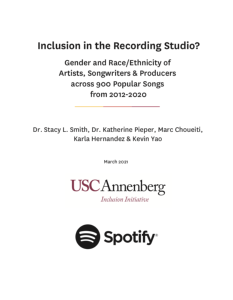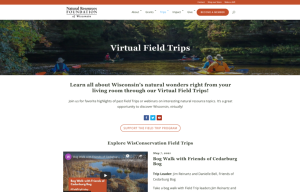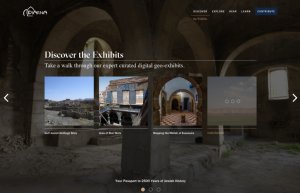General Interest
Back to Top
|
 |
|
 |
|
Strange By Nature Podcast
|
Science |
|
The natural world can be a strange place. Strange by Nature, a science podcast launched in 2021, aims to be listeners' "guide to the strange, weird and unbelievable side of nature." Each week, hosts Kirk Mona, Rachel Giemza, and Victoria Thompson - three Minnesota-based naturalists and environmental educators - present a trio of stories of the strange, grounded in science and bolstered by a sense of humor. For instance, Episode 31 ("Your Flamingo Seems to be on Fire") explores the challenges of determining when a species has gone extinct, whether mosquitos favor humans of certain blood types, and if the myth of the Phoenix is rooted in historical events. Episode 39 ("The Supervolcano that (Probably) Won't Kill Us") tackles a man who married a crane, the Yellowstone supervolcano, and research into birds navigating by smell. Readers interested in science, nature, and the environment who wish to learn more about the wild and weird diversity of our world will not want to miss this podcast. Listeners can subscribe on platforms such as Apple Podcasts, Stitcher, Spotify, and Google Podcasts, and follow along on Twitter (@strange_nat_pod) for updates. [MJZ] |
|





|
|
 |
|
Inclusion in the Recording Studio
|
Arts |
|
The world of musical entertainment offers a variety of diverse voices, but often individuals are overlooked and not awarded for their contribution. Individuals and organizations involved in music production, or simply any musicophiles, will appreciate this report, Inclusion in the Recording Studio? Gender and Race/Ethnicity of Artists, Songwriters & Producers across 900 Popular Songs from 2012-2020, from the University of Southern California Annenberg Inclusion Initiative and Spotify. The report, from March 2021, highlights numerous disparities faced by artists, producers, and songwriters from underrepresented groups. The report features multiple infographics calling attention to issues of diversity and inclusion, followed by textual summaries of key empirical findings that showcase how these inequalities have progressed over time. For instance, one startling finding is that "The ratio of men to women producers across 600 popular songs was 38 to 1," over the period under study, demonstrating how few women are represented in positions of power in the industry. This report was written by Stacy L. Smith, Katerine Pieper, Marc Choueiti, Karla Hernandez, and Kevin Yao. [AMR] |
|





|
|
 |
|
Open Arizona
|
Social studies |
|
Open Arizona is a collection of open-access titles from the University of Arizona Press, part of the Humanities Open Book program, jointly sponsored by the Andrew W. Mellon Foundation and the National Endowment for the Humanities. The collection consists of 32 critical works from the press (including some that had gone out of print), but which are now available digitally. The topical focus woven through the volumes touches on the importance of the Southwest U.S. to understanding modern American life, including subjects such as government policy, Indigenous communities, and the experiences of Mexican-Americans. A prime example is the book Missionaries, Miners, and Indians: Spanish Contact with the Yaqui Nation of Northwestern New Spain, 1533-1820, by Evelyn Hu-DeHart, which explores the Yaqui Indian resistance and documents their complex relationship with Jesuit missionaries during the Spanish colonization of Mexico. Visitors can read any of the titles in the collection in an online reader (click "Read Text" on any title page) or download for offline use (click "Download Text"). Open Arizona also includes a set of 10 "Essays" (which are linked in the menu at the top of the page) written by contemporary scholars, which provide readers with insights and reflections about the books in the collection. Readers can also click "The University of Arizona Press" in that menu to learn more about the press, its work, and other publications. [REB] |
|





|
|
 |
|
Natural Resources Foundation of Wisconsin: Virtual Field Trips
|
Science |
|
To teach students about nature and inspire them with wonder for the natural world, there's really nothing better than a field trip. Yet if the learning challenges of the past two years have revealed anything, it's that education must be flexible to meet students where they are. These virtual field trips are a perfect example, offering educators in ecology, biology, life sciences, and other topics the opportunity to "take" their students to see Wisconsin's wildlife. Each of these 15 virtual field trips lasts approximately 5-20 minutes and features stunning visuals and explanations from expert naturalists, conservationists, and tour guides. For example, teachers can take students on a tour of Hoo's Woods Raptor Center to see how injured owls and hawks are rehabilitated. Or, as the cold winter months set in, educators can introduce a little sunshine with a springtime search for frogs and turtles with conservation biologist Andrew Badje. There are also field trips that any visitor would enjoy, such as a walk through blooming wildflowers in Schmidt Maple Woods. The field trips are embedded in the page linked above, and include links to resources for further information and to support conservation efforts. The Nature Resources Foundation of Wisconsin is a non-profit organization whose mission is to "connect generations to the wonders of Wisconsin's lands, waters, and wildlife through conservation, education, engagement, and giving." [MJZ] |
|





|
|



















